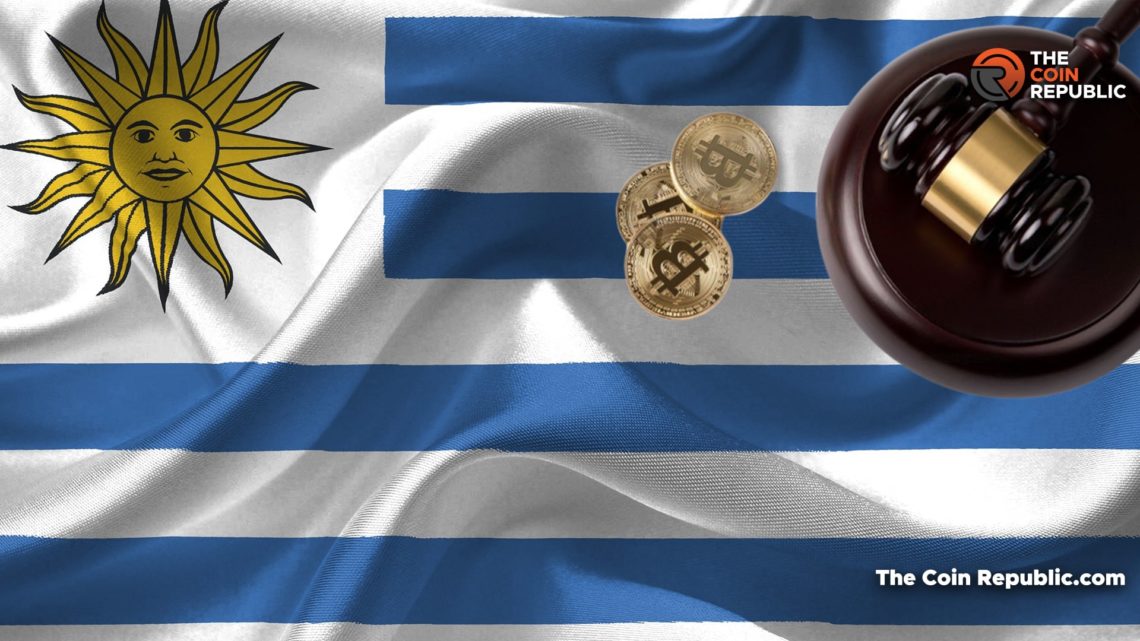- Uruguay’s presidential branch has proposed a bill that would place the country’s national bank responsible for directing computerized resources
- The proposed guideline would likewise make changes to the country’s protections regulation to incorporate computerized resources as book-passage protections.
- The bill would require full legislative endorsement under the steady gaze of it could become regulation
Uruguay’s presidential branch has proposed a bill that would permit the country’s national bank to legitimately manage virtual resources, nearby paper El Observador investigated September 8.
The bill, proposed to Uruguay’s parliament for thought, recommends placing virtual resource specialist organizations into another classification of organizations, the paper said. These organizations would at last solution to the Administrator of Monetary Administrations (SSF), which is important for Uruguay’s national bank.
Bill would also update Uruguay’s securities market law
These virtual resource specialist co-ops, known as PSAVs for their abbreviation in Spanish, are characterized as elements that expertly offer virtual resource administrations to outsiders consistently. Such exercises incorporate the authority and trade of virtual resources among each other or to government issued money.
The bill would require all elements that work with virtual resources in Uruguay to be dependent upon worldwide enemy of tax evasion guidelines, regardless of whether they are essential for the country’s monetary framework.
El Observador makes sense of that the bill would likewise refresh Uruguay’s protections market regulation to put crypto resources under the meaning of book-passage protections.
Up until this point, it is muddled the way in which the bill could travel through Uruguay’s bicameral General Gathering. Whenever presented, the proposition would need to go through the nation’s Senate and Office of Appointees regardless of changes before the presidential branch could consider whether to make it regulation.
ALSO READ: Ripple CTO Says Bitcoin Might Have A Severe Bug
Blockchains fall within the wider DLT category
As per the message of the bill, Uruguay’s national bank characterizes virtual resources as a virtual portrayal of significant worth or legally binding privileges that can be put away, moved and haggled electronically through conveyed record innovation (DLT) or comparable advances. Blockchains fall inside the more extensive DLT class, the message explained.
The bill then proceeds to depict various arrangements of virtual resources, with classes including virtual resource protections, virtual resources of utility, stable virtual resources, for example, stablecoins and national bank virtual monetary standards (CBDCs), and virtual resources of trade, for example, bitcoin and ether.
Uruguay was quite possibly the earliest country to investigate a national bank virtual money (CBDC) pilot project back in 2017, however so far has not passed any crypto-explicit guidelines. The discussion around doing so got in August 2021 when representative Juan Sartori proposed a bill that would legitimize virtual resources, yet it has not become regulation.

Nancy J. Allen is a crypto enthusiast, with a major in macroeconomics and minor in business statistics. She believes that cryptocurrencies inspire people to be their own banks, and step aside from traditional monetary exchange systems. She is also intrigued by blockchain technology and its functioning. She frequently researches, and posts content on the top altcoins, their theoretical working principles and technical price predictions.


 Home
Home News
News










